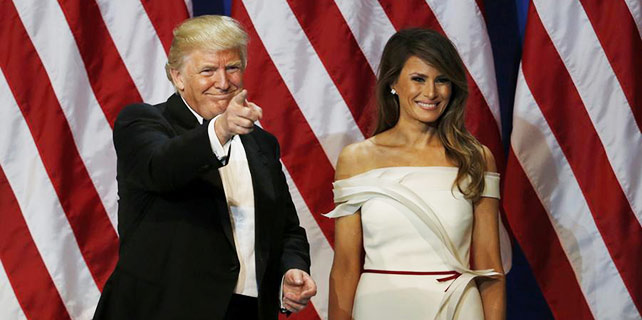The future is in their hands
Updated: 2013-03-22 07:08
By Giles Chance(China Daily)
|
||||||||

China's new leaders have a long journey ahead, and they need to take public with them
Xi Jinping's first official trip after being elected Party chief could turn out to be a good indicator of his policy focus. He went to Shenzhen and Guangzhou, the scene of Deng Xiaoping's symbolic and famous journey in 1992 which pushed China back onto a path of successful reform. To emphasize the message, Xi even laid a wreath in front of Deng's statue in Shenzhen, and planted a tree nearby. Since the Party Congress in November, a sense of anticipation has been created by the positive signals emanating from Xi, and Li Keqiang, elected president and premier last week.
What lies ahead?
The first priority is to create a foundation for sustainable, long-term economic growth which does not depend on continuous and massive infrastructure spending by the state, and which loosens the grip of the state-owned sector on the economy. The new government should take steps to introduce more competition into the economy.
Most economic sectors - telecoms, banking and other financial services, upstream and downstream petroleum, auto and aerospace - should be fully opened up to domestic and foreign competition. Incumbent state-owned enterprises and their parent ministries will naturally resist increased competition, arguing that lowering entry barriers in key economic sectors will damage state security and reduce safety standards, harm profitability and limit the employment capacity of the SOEs. But if the government puts a well-considered, strong and fair regulatory system in place for each major sector of the economy, there's no reason why consumer safety or national security should be endangered by introducing more competition.
The potential economic benefits for China of greater competition are huge and well documented. You only have to look at the United States and Europe from the 1970s to see how the dramatic economic and social impact from increased competition brings more consumer choice, lower prices and faster economic growth. An SOE which learns to compete will end up making much more money in a competitive world than it did when it dominated a restricted market. The reason? Markets with a number of strong competitors grow much faster than markets with a few dominant players, because dramatic price reductions, continuous product improvement and good marketing attract customers.
If the new government makes a start by improving competition in most economic sectors, consumers will quickly start to benefit. This benefit for consumers will bring the support of the general public to the government's reform program. Strong public support is essential to a sustained reform process.
Tax changes sound unspectacular, but they are fundamental to the corruption battle, as well as to the strength of government finances. The dependence of local government revenues on land sales encourages corruption. Land developers bribe local officials in order to pry valuable greenfield sites away from farmers and villages, by way of compulsory purchases and official relocation demands, both of which are sometimes unfair and lead to social unrest.
Local governments in China need to change their revenue base, to reduce the importance of selling land, and to increase recurring income from local taxes which are fairly assessed and administered, starting with taxes on property ownership, and continuing with local value added taxes, like those levied in certain US states. At the central level, the revenues from business tax need to be gradually augmented by value-added tax, with financial support in place for those poorest members of society who are disproportionately affected by sales taxes.
For most Chinese, official corruption remains a key social issue. The new government has shown its awareness of the problem by nominating Wang Qishan, one of its ablest members, to lead the country's attack on corruption. But if you believe, like I do, that in general, Chinese officials are morally no worse than government officials from countries like Britain, where corruption is a much smaller problem, then you can accept that corruption in China arises not from widespread official immorality, but from the system itself.
Changes in the system, rather than the pursuit of individuals, will have the greatest impact in reducing corruption to "normal" or acceptable levels. In a system where the control of public assets and licences by senior local officials has enormous financial consequences for business people, it is very hard to stop private individuals trying to pervert individual officials for their own gain. Overhauling the fiscal revenue system of local governments, reducing the power of state-owned companies, and placing less reliance for economic growth on huge public programs are three steps that will improve the system, and help to reduce corruption. A fourth is to make government procurement more transparent.
The dreadful air quality on some days over this winter in Beijing has made pollution a hot issue. The new government needs to become more open about China's pollution problem. Every major industrial country, from Britain 150 years ago to Japan in the 1960s and 70s has had a serious pollution problem. It's an issue of money, which China now has, and of political will.
The emergence recently of new kinds of public financing outside the control of the central bank draws attention to the increasingly urgent need to modernize and liberalize China's financial institutions. Increased mobility of labor requires thorough reform of the household registration system.
The economic and social reform "to-do" list for the new government is a long one. But the most important development for the new government concerns its relationship with the Chinese people. Today, a few seconds is all it takes for one person in Chengdu, Shanghai or Shenyang to forward a Web page to many thousands or even millions of other Chinese hundreds or thousands of miles away. Chinese social media have already radically changed the relationship between the government and the people.
As a number of local government officials have discovered recently to their cost, advances in communications technology have created much greater openness in China. It is tempting for the government to try to turn the clock back and limit the media. But the social trend of openness through communication cannot be reversed. In this new context of social media, the next government has the vital task of repositioning itself with the people.
Surveys show that while the Chinese may hate officials who use their positions to become rich, they are proud of their country, and most of them support the government. In these circumstances, it is certainly possible for the government to evolve into a more transparent and less arbitrary organization, serving the people more and better, and itself less. The battle against official corruption in China will be much more successful if it goes hand-in-hand with greater government openness.
The author is a visiting professor at Guanghua School of Management, Peking University. The views do not necessarily reflect those of China Daily.
(China Daily 03/22/2013 page6)
- Fireworks sales fall before Lunar New Year
- Mountain 'Spiderman' collects garbage at a cliff
- Infographic: Xi's nationwide journey against poverty
- Train tickets to Hainan hardest to purchase
- Outbound travel market far from mature, claims report
- Prone cycling enthusiast wants more to get out of the saddle
- Fog descends across London, forces flights cancellations
- German chancellor attends carnival reception
- Signs of solutions loom in Syria with int'l approach in Astana
- Europe's nationalist leaders kick off year of election hopes
- Theresa May tries to dispel Brexit worries at Davos forum
- Gambians, tourists flee on eve of deadline for leader to surrender power

 People across China greet upcoming Spring Festival
People across China greet upcoming Spring Festival
 Fog descends across London, forces flights cancellations
Fog descends across London, forces flights cancellations
 Top 10 best-selling car models in China
Top 10 best-selling car models in China
 Chinese youth: Learning by helping
Chinese youth: Learning by helping
 Xi's inspection tours ahead of Spring Festival
Xi's inspection tours ahead of Spring Festival
 The moment migrant worker met son after 24-hour journey
The moment migrant worker met son after 24-hour journey
 Offering holiday cheer during train station travel rush
Offering holiday cheer during train station travel rush
 Donald Trump's first weekend as US president
Donald Trump's first weekend as US president
Most Viewed
Editor's Picks

|
|
|
|
|
|
Today's Top News
China, Allies ponder US role after TPP withdrawal
Petition push on Nanjing bill
For one day, London's smog quotient was greater than Beijing's
China persists with other FTAs after US leaves TPP
Foxconn CEO met with official in Pennsylvania
Cui: China doesn't want a trade war
Trump moving forward with border wall, weighs refugee cuts
Mainland investors snap up overseas real estate
US Weekly

|

|


















